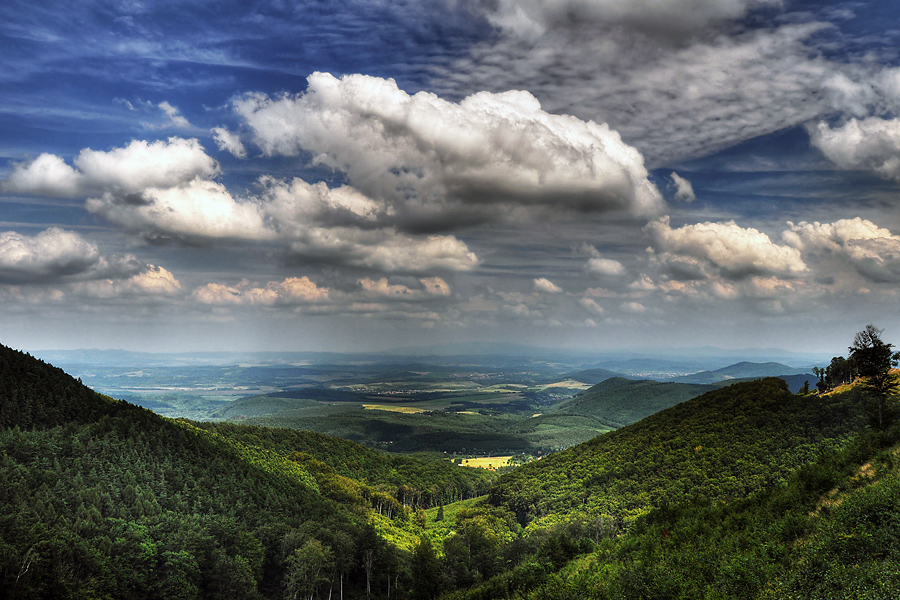Introduction
The north of Hungary is home to the country's highest peak, miles and miles of hiking trails, vast cave complexes, lakes, waterfalls, sweet golden and robust red wines, UNESCO world heritage sights and old industrial towns where time has stopped.
Hike the Mátra mountain range, where you can summit Hungary's highest peak, Kékestető, which is really a walk in the park at just 1,014m high. Further east you'll find the beautiful Bükk Mountains, with woody trails and waterfalls, country palaces and gardens. If going underground is more your style, go to Aggtelek. There's a spectacular 26-km-long cave system with an underground theatre and stalactites and stalagmites so impressive they've got names.

Tokaj-Hegyalja, a World Heritage site since 2002, is the most famous among Hungary's wine regions, and not without a reason. It has a very special climate around the perfectly shaped, volcanic Tokaj Mountain, which helps noble rot to evolve thus giving an extraordinary aroma and texture to certain wines. The liquid gold produced here is called Tokaji Aszú, and carries the highandmighty title of ‘king of wines, wine of kings'. If you feel like being a king for a day, or just drinking like one, all you need is a bottle of Tokaji and some fancy glassware.
If fullbodied reds are more like your type, taste the Bull's Blood in Eger. This charming little town is not only renowned for its wonderful wines,, but also its thermal baths and historical buildings (even a Turkish minaret and a castle up on the hill) galore. Eger was besieged in the mid-16th century and the heroic story of the Stars of Eger is a source of Hungarian national pride.
When staying in Eger, it is a must to walk over to the Szépasszonyvölgy, or the valley of the beautiful woman, to visit the wine cellars. Here you will find a green valley covered in grapevines with wine cellars built into the hillside one after the other.

For a general idea about how village people might have lived in the area, visit World Heritage Listed Hollókő, named the most beautiful village in Hungary in several surveys. Time has really stopped here some hundreds of years ago, girls and women still wear voluminous, multicolored skirts and billowing blouses as they stroll the streets with men in black boots, felt waistcoats and round hats. Visit this whitewashed and wooden-roofed northern village any day of the year, but for a truly old school folk festivity go at Easter. You might get sprinkled with a bucketload of cold spring water, but only in the name of fertility and eternal youth.
Northern Hungary is also home to some pretty extraordinary baths too. A mofetta may sound like the name of a mythical monster but it is in fact a dry bath employing volcanic gas discharge. Find out what the carbon-dioxide that rises from 1,000 metres underground can do for you in Mátraderecske. Or for a truly unique experience chill out in a cave. The 30 ºC water in the cave bath of Miskolctapolca will treat your joints to some love and care while you enjoy floating in the dim light. In Egerszalók the hot waters from two ancient thermal springs have been flowing out of the side of a hill for ages, leaving behind beautiful mineral formations.


